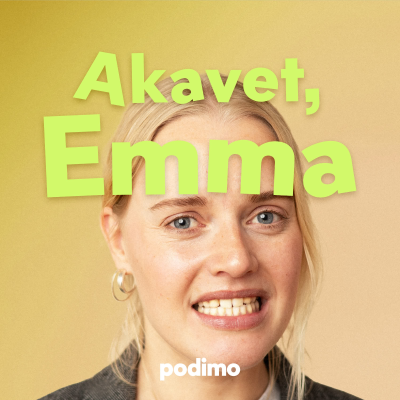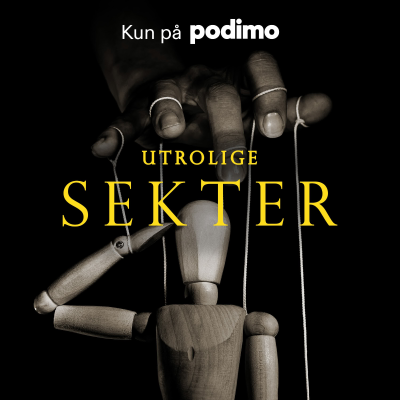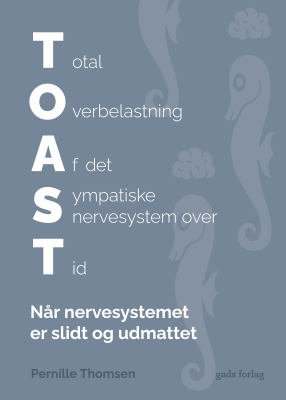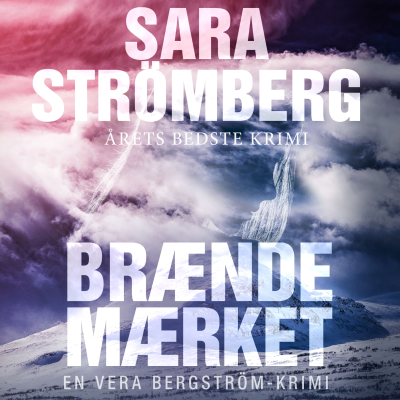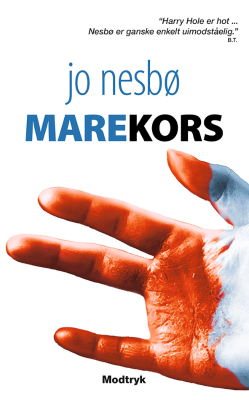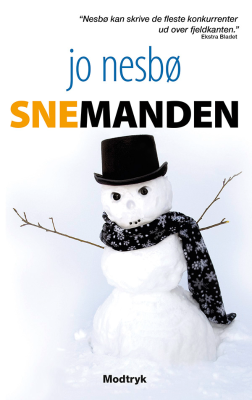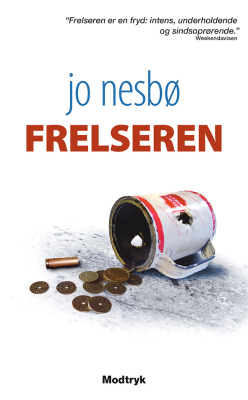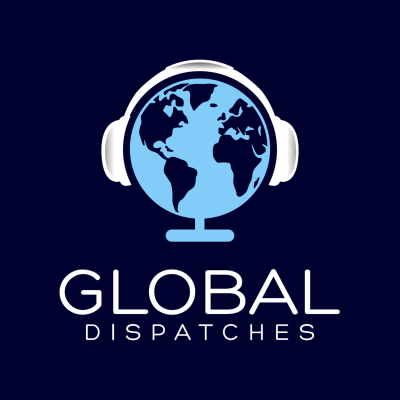
Global Dispatches -- World News That Matters
engelsk
Nyheder & politik
Begrænset tilbud
2 måneder kun 19 kr.
Derefter 99 kr. / månedOpsig når som helst.
- 20 lydbogstimer pr. måned
- Podcasts kun på Podimo
- Gratis podcasts
Læs mere Global Dispatches -- World News That Matters
The longest running independent international affairs podcast features in-depth interviews with policymakers, journalists and experts around the world who discuss global news, international relations, global development and key trends driving world affairs. Named by The Guardian as "a podcast to make you smarter," Global Dispatches is a podcast for people who crave a deeper understanding of international news.
Alle episoder
1159 episoderEthiopia Is Sliding Fast Toward Major War
Ethiopia is on the brink of a war that could turn into a major regional conflagration. Over the past several weeks, military forces have been moving into position across the region in a conflict that would pit the government of Ethiopia and some allied militias against Eritrea and a rebel faction from Ethiopia's northern Tigray region, among others. There are several concurrent forces driving the region toward conflict: lingering resentments and unresolved disputes from Ethiopia's civil war from 2020 to 2022; a move by the government of landlocked Ethiopia to potentially claim a Red Sea port in neighboring Eritrea; and spillover from the civil war in Sudan, where outside forces like the United Arab Emirates, Egypt, and Saudi Arabia are seeking to expand their regional footprint. All of this is pushing the region, seemingly inexorably, toward war. This would be a disaster. The civil war from 2020 to 2022 killed an estimated 500,000 people and exposed violent ethnic fissures in Ethiopia. This time around, many of the belligerents are the same—but they have switched sides. Back in 2020, Eritrea and Ethiopia allied to fight a rebellious group in the Tigray region. This time, Eritrea and Tigrayan rebels are joining forces to fight Ethiopia, with several other ethnic militias joining in. Also different this time is the active presence of malicious Gulf actors. Earlier this month, Reuters reported that Ethiopia had established, with UAE backing, a training camp for the Rapid Support Forces militia that is ravaging Darfur in Sudan. Several NGO groups, think tanks, and regional or specialty news outlets have picked up this story—and are sounding the alarm. But so far, we have not yet seen much Western media attention to this incipient crisis. That's tragic, given the sheer human calamity that would unfold if Ethiopia and Eritrea once again descend into a conflict that reverberates across the region. My interview guest today is journalist Zecharias Zelalem. We kick off by discussing recent moves that suggest war could break out at any moment, and then have a longer conversation about what is driving this conflict—and what might bring the region back from the brink. Support this kind of journalism with your paid subscription. https://www.globaldispatches.org/40PercentOff [https://www.globaldispatches.org/40PercentOff]
Board of Peace v United Nations | US To Attack Iran? - To Save Us From Hell
It was an odd juxtaposition: Trump's inaugural Board of Peace gathered in Washington, D.C. as the U.S. appeared to be readying for war with Iran. In this week's To Save Us From Hell episode, Mark and Anjali discuss why this Board of Peace can't really compete with the Security Council, and what its advent says about international relations today. They then discuss a looming American attack on Iran, and what that suggests about the diminishing role of international law and the much-lamented rules-based international order. Finally, they unpack a bizarre confirmation hearing for Trump's pick for assistant secretary of state for international organization affairs—who appears to be too racist for this particular role. https://www.globaldispatches.org/40PercentOff [https://www.globaldispatches.org/40PercentOff]
Why Has the United States Deployed Gunboats to Haiti?
On February 3, the United States deployed a warship and Coast Guard vessels off the coast of Haiti, near Port-au-Prince. The move came amid political wrangling within Haiti's Transitional Presidential Council, as some members sought to block Washington's preferred candidate from becoming the next prime minister. This deployment comes amid a deepening political, security, and humanitarian crisis in Haiti that stretches back to the 2021 assassination of President Jovenel Moïse. In the wake of that killing, armed criminal gangs—once largely confined to a handful of neighborhoods in Port-au-Prince—began seizing territory. Today, a gang alliance controls most of Port-au-Prince and some surrounding areas. Meanwhile, a new UN-backed multinational security force of roughly 5,500 troops is expected to deploy in the coming weeks to help the Haitian National Police confront these gangs. My guest today is Diego Da Rin, Haiti analyst at the International Crisis Group. We begin by unpacking what this American show of force is meant to accomplish, then turn to the interlocking political, security, and humanitarian crises facing Haiti—and whether the UN-backed force can make a meaningful difference. https://www.globaldispatches.org/40PercentOff
The Last Nuclear Arms Control Agreement Between the US and Russia Just Expired. What's Next?
The New START treaty, signed by the United States and Russia in 2010, limited both countries to 1,550 deployed strategic warheads, placed restrictions on how those weapons could be deployed, and included strong verification mechanisms to ensure compliance. On February 6, 2026, that treaty formally expired. And now, for the first time in decades, there is no bilateral nuclear arms agreement between the world's two foremost nuclear powers. Joining me today to discuss the implications of the expiration of the New Strategic Arms Reduction Treaty is Corey Hinderstein, Vice President for Studies at the Carnegie Endowment for International Peace. We kick off by discussing how New START built on previous arms control treaties between the United States and Russia, what it means that no such treaty now exists—and why China's rapid nuclear buildup adds a vexing new challenge to future arms control efforts. There are very few media outlets these days that consistently cover nuclear security issues, despite the existential risks posed by nuclear weapons. I'm glad to bring you this episode. If you care about the future of humanity and want to help me continue producing thoughtful conversations like this, please become a paid subscriber. I'm running a subscription drive this month—and believe me when I say every single new paid subscriber makes a real difference. https://www.globaldispatches.org/40PercentOff [https://www.globaldispatches.org/40PercentOff]
Spain's Prime Minister Pedro Sánchez Is Rewriting the Political Playbook
Donald Trump doesn't much like Pedro Sánchez — and the Spanish prime minister is perfectly fine with that. Unlike other European leaders who reflexively genuflect to the American president, Pedro Sánchez stands apart for his willingness to confront Trump—not for its own sake, but in service of a theory of politics that diverges sharply from many of his European counterparts. As my guest, journalist Dave Keating, puts it: "While other European leaders zig, Pedro Sánchez zags." Most recently, Sánchez enacted policies to regularize the immigration status of roughly 500,000 undocumented migrants living in Spain, granting work permits and other pathways to formally enter Spanish society and the economy. He has also resisted efforts to substantially increase defense spending, while boosting Spain's support for international development and foreign aid. In today's interview, we discuss Pedro Sánchez's unique standing in European politics, why he's sometimes shunned by other leaders in Brussels, and whether his experiment in regularizing half a million undocumented migrants can actually succeed. Dave Keating is the Brussels correspondent for France 24, writes the Gulf Stream Blues [https://davekeating.substack.com/] https://davekeating.substack.com/Substack, and is the author of the new book The Owned Continent: How to Free Europe from American Military, Economic, and Cultural Dependence [https://theownedcontinent.eu/].
Vælg dit abonnement
Begrænset tilbud
Premium
20 timers lydbøger
Podcasts kun på Podimo
Gratis podcasts
Opsig når som helst
2 måneder kun 19 kr.
Derefter 99 kr. / måned
Premium Plus
100 timers lydbøger
Podcasts kun på Podimo
Gratis podcasts
Opsig når som helst
Prøv gratis i 7 dage
Derefter 129 kr. / måned
2 måneder kun 19 kr. Derefter 99 kr. / måned. Opsig når som helst.


